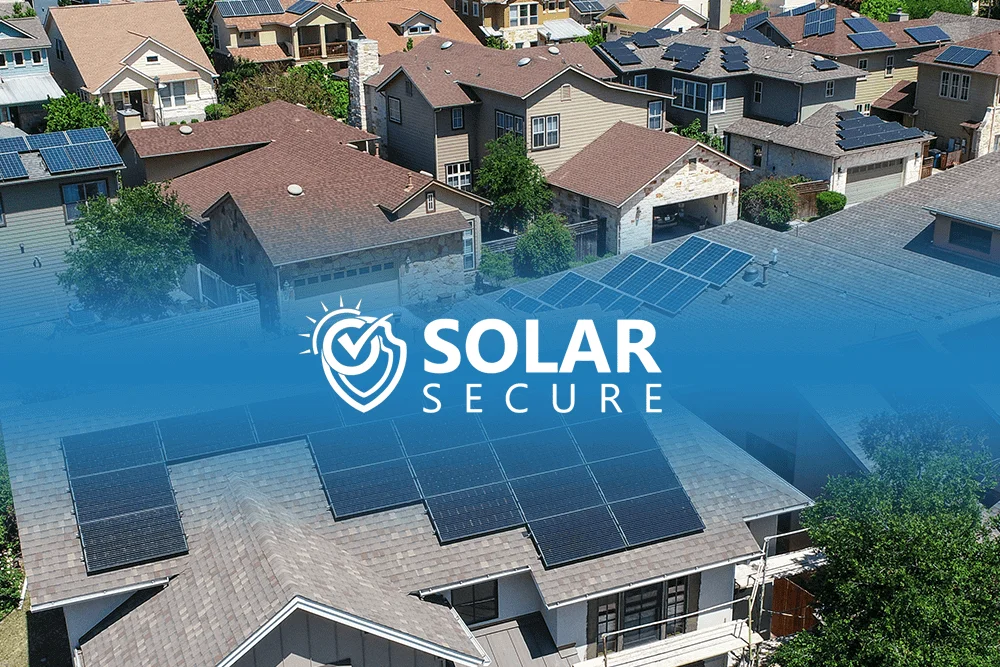As experienced solar professionals, we have observed a pattern of mistakes made by beginners who are just starting their journey into designing their own solar panel systems. In an effort to assist and prevent potential problems and costly errors, we have compiled a list of the most frequent mistakes we see.
Since 2019, we have interacted with countless individuals who are passionate about transitioning to solar energy, often fueled by the realization that it is not only environmentally friendly, but also more economical in the long run compared to relying on traditional utility companies.
While excitement is great, it can sometimes lead to impulsive actions and skipping important steps in the research and design process. People may hastily search for products, calculate rough cost estimates, and start visualizing solar panel arrangements without fully comprehending the complexity of designing a solar panel system.
To provide a clearer understanding, we have consulted with our colleagues to identify the most common solar misconceptions and mistakes that individuals encounter during their initial stages of researching and designing their solar panel systems.
Confusing Off-Grid and Grid-Tie Solar: Understanding the Differences
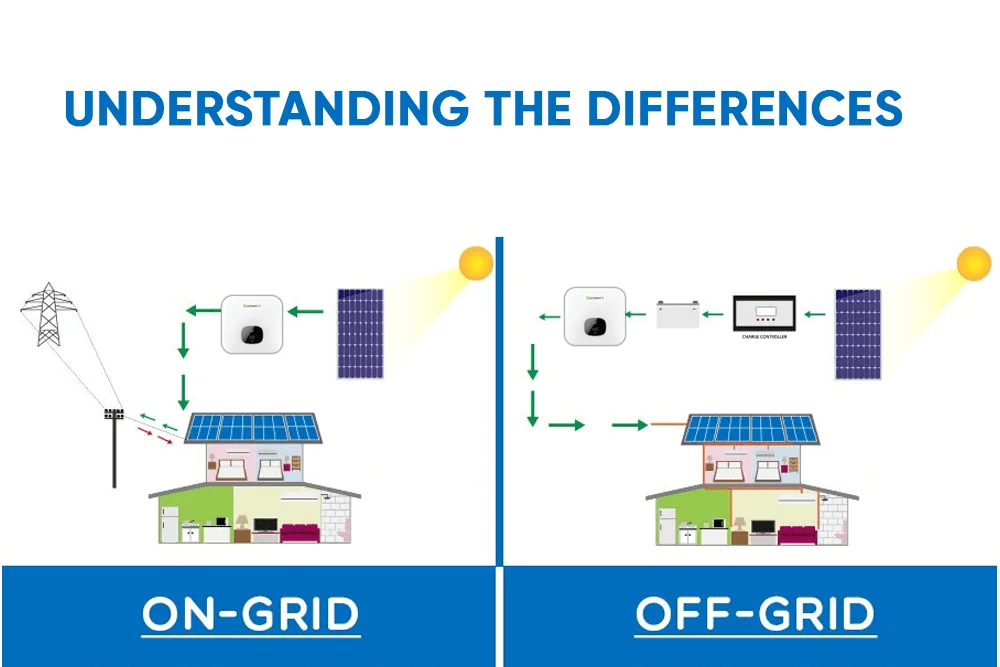
Off-grid and grid-tie solar panel systems are two different types of solar panel systems that have distinct characteristics and purposes. While both have gained popularity as a source of clean and renewable energy, there is a lot of confusion between the two and it's important to understand the differences.
-
Off-Grid Solar panel Systems
An off-grid solar panel system is a standalone solar power system that is not connected to the electrical grid. This means that it generates its own electricity through solar panels, batteries, and an inverter and does not rely on the traditional electrical grid for power. Off-grid systems are ideal for remote locations or places where it's difficult or expensive to connect to the electrical grid. They provide a reliable source of electricity and are self-sufficient, requiring only sunlight and batteries to power homes, businesses, or other structures.
-
Grid-Tie Solar panel Systems
A grid-tie solar panel system, on the other hand, is connected to the electrical grid and works in conjunction with it. Grid-tie systems generate electricity through solar panels and an inverter, but instead of using batteries for storage, they feed excess electricity back into the grid. When the solar panels are not generating enough power, the system draws from the electrical grid to meet the demand.
The Benefits of Both solar panel Systems
Both off-grid and grid-tie solar panel systems offer several benefits. Off-grid systems are ideal for remote locations, where it's difficult or expensive to connect to the electrical grid. They provide a reliable source of electricity and can be self-sufficient, reducing energy costs and dependence on the electrical grid.
Grid-tie systems are ideal for homes and businesses that are connected to the electrical grid. They can reduce electricity costs by generating power from the sun and feeding excess electricity back into the grid. In addition, they can provide peace of mind, knowing that even if the sun isn't shining, you'll still have access to power from the electrical grid.
The Downside of Each System
While both solar panel systems offer benefits, they also have their downsides. Off-grid systems require a significant investment in batteries and inverters, which can be expensive. Additionally, the batteries may need to be replaced after a few years, further increasing the cost
Grid-tie solar panel systems, on the other hand, require a connection to the electrical grid, which may not be possible in some locations. Additionally, if the electrical grid goes down, so does the solar panel system, leaving the homeowner without power.
In conclusion, both off-grid and grid-tie solar panel systems are great options for generating clean and renewable energy. However, it's important to understand the differences between the two and to choose the system that best fits your needs and budget. Whether you're looking for a self-sufficient power source or a way to reduce your electricity costs, there is a solar panel system that's right for you.
Improper system sizing
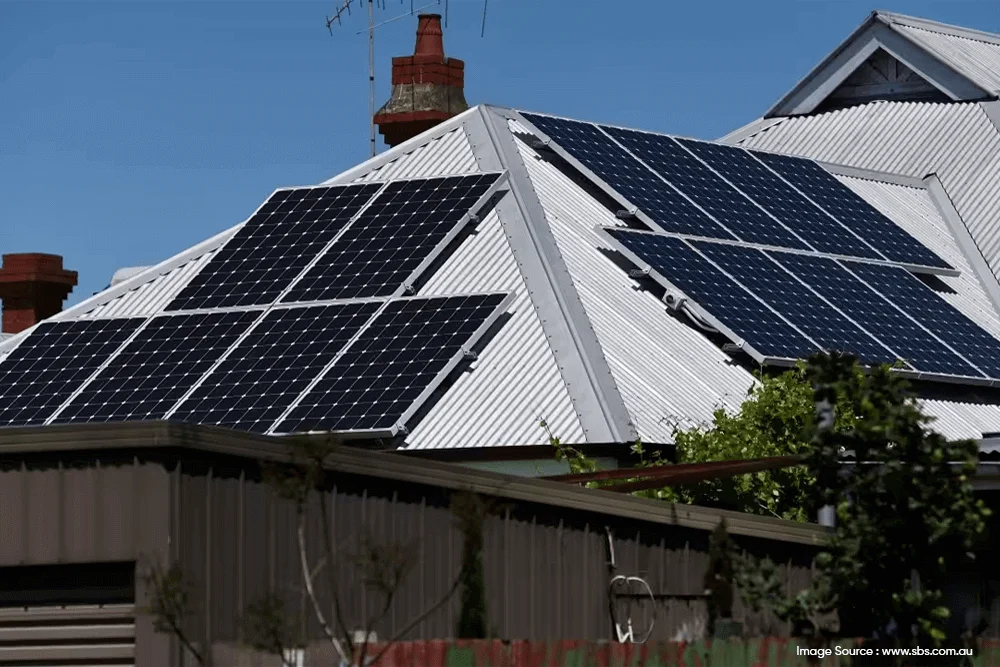
Sizing a solar panel system is more complex than it appears at face value.
The world has become more energy conscious and the demand for renewable energy solutions has increased dramatically. Solar energy is one of the most popular renewable energy sources. Solar panels can be installed on homes and commercial buildings to produce clean energy and reduce electricity bills.
However, one common mistake that people make when installing solar panels is improper system sizing. This means that the solar panel system is either too big or too small for the building's energy requirements.
If the system is too big, it will produce more energy than the building can use, which is a waste of resources and money. This can also lead to problems with the local utility company, who may not allow the excess energy to be fed back into the grid.
On the other hand, if the system is too small, it will not produce enough energy to meet the building's needs, resulting in increased electricity bills and the need for supplementary power sources.
Proper system sizing is crucial to ensure that the solar panel system meets the energy requirements of the building while also being cost-effective. There are several factors to consider when sizing a solar panel system, including:
-
Energy consumption:
The energy consumption of the building must be determined to determine the size of the solar panel system required. This includes the amount of energy used for heating, cooling, lighting, and appliances.
-
Location:
The location of the building will affect the amount of sunlight it receives, which is a key factor in determining the size of the solar panel system.
-
Climate:
The climate in the area will also affect the size of the solar panel system. In areas with a lot of sunshine, a larger solar panel system may be needed, while in areas with less sunshine, a smaller system may be sufficient.
-
Building orientation:
The orientation of the building is also important. South-facing roofs are the most effective for solar panel installation, as they receive the most sunlight.
It is essential to work with a professional solar panel installer to ensure proper system sizing. They will assess the building's energy requirements, location, climate, and orientation to determine the size of the solar panel system required.
In conclusion, proper system sizing is essential for a successful solar panel installation. It ensures that the system meets the energy requirements of the building while also being cost-effective. If you are considering installing solar panels, make sure to work with a professional installer to ensure proper system sizing.
"Solar prevents power outages!" You’re generating your own energy, so the lights should stay on during a power outage, right?
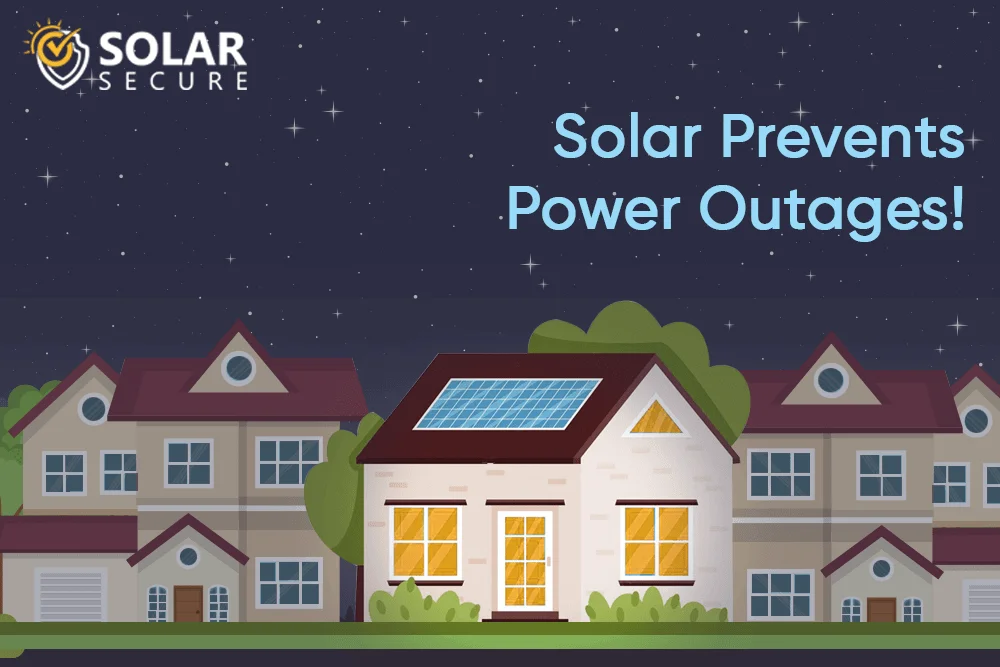
In recent years, there has been a growing interest in renewable energy sources, and one of the most popular options is solar power. With its numerous benefits, solar energy is fast becoming an attractive solution for households and businesses alike. And one of the most significant benefits is its ability to prevent power outages.
A power outage can have serious consequences, from food spoilage in your refrigerator to the disruption of essential services such as healthcare and communication. In extreme cases, power outages can even result in loss of life. This is why having a backup energy source is crucial. Solar power provides an ideal solution to this problem.
One of the key advantages of solar power is that it is an independent energy source, not dependent on the grid. This means that during a power outage, you can continue to generate your own energy, ensuring that your lights stay on and your essential services continue to function.
Solar panels work by converting sunlight into electricity, which can be stored in batteries for use during the night or when the sun isn’t shining. This stored energy can then be used during power outages, ensuring a continuous supply of electricity. And because solar panels are completely silent, you won't even know there's a power outage!
Another advantage of solar power is that it is a clean and sustainable source of energy. Unlike traditional power sources, it does not produce harmful emissions that harm the environment, so you can enjoy peace of mind knowing that you are making a positive impact on the planet.
In conclusion, solar power is a valuable investment for anyone who wants to prevent power outages and ensure a constant supply of electricity. With its numerous benefits, it is fast becoming an attractive solution for households and businesses alike. So if you’re tired of worrying about power outages, consider switching to solar power today. Your lights will stay on, and you'll enjoy peace of mind knowing that you have a sustainable and reliable energy source.
Is Solar a bad investment? Solar isn’t feasible in Australia?
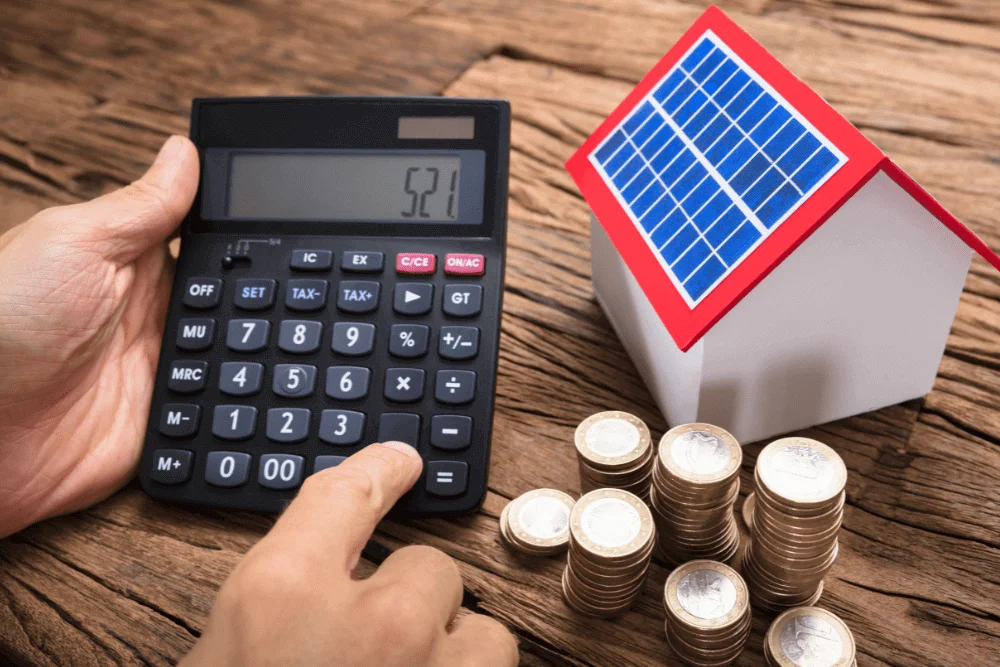
Solar energy has gained a lot of popularity in recent years as a clean and renewable source of energy. However, there are still some misconceptions about solar energy and its feasibility, especially in Australia. In this we will look at whether solar energy is a bad investment and whether it is feasible in Australia.
One of the common misconceptions about solar energy is that it is not a good investment. This notion is based on the upfront costs of installing a solar energy system. It is true that the initial investment for a solar panel system can be significant, but it is important to consider the long-term benefits. Solar panel systems can last for 25-30 years and can provide you with a source of clean and renewable energy. This not only helps you reduce your carbon footprint, but also saves you money on your electricity bills in the long run.
Moreover, solar panel systems are becoming more affordable and accessible. With advancements in technology and increased competition, the cost of solar panel systems has decreased significantly. In addition, there are government incentives and rebates available in Australia that make solar panel systems even more accessible.
Another misconception is that solar panel energy is not feasible in Australia. This is far from the truth. Australia has some of the best solar resources in the world. With its abundant sunshine and high solar radiation levels, Australia is well-suited for solar energy. In fact, Australia has been one of the leading countries in the adoption of solar energy, with over 2 million households relying on solar panels.
In conclusion, solar panel is a great investment for those who want to reduce their carbon footprint and save money on their electricity bills. With its abundant solar resources, Australia is a great place to invest in solar energy. So, if you're considering investing in solar energy, don't let misconceptions stop you from taking advantage of this clean and renewable source of energy.
Financing -Solar power is a sound investment…if you own your system in Australia
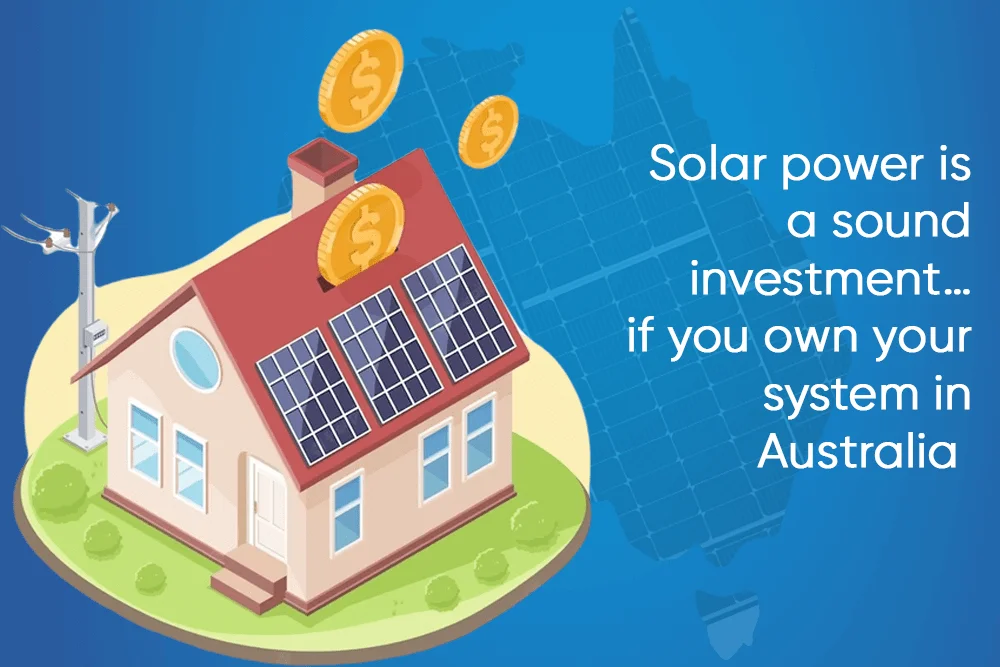
Solar power has become an increasingly popular way to generate energy in Australia, both for homes and businesses. With advancements in technology, solar panels have become more efficient and cost-effective, making them a great investment for those who own their solar panel system. In this blog, we will discuss the benefits of financing your own solar panel system in Australia, and why it is a sound investment for the long-term.
Reduced Energy Costs One of the most significant benefits of owning a solar panel system in Australia is the reduction of energy costs. Solar panels generate clean, renewable energy that can be used to power homes and businesses. This reduces the amount of energy that needs to be purchased from the grid, leading to lower energy bills. Furthermore, solar panel systems have no moving parts, which means they require very little maintenance, further reducing the long-term costs of owning a solar panel system.
Increased Home Value Owning a solar panel system can also increase the value of your home in Australia. A study by the Clean Energy Council found that homes with solar panels tend to sell faster and at higher prices than homes without them. This is because solar panel systems are seen as a valuable upgrade, making homes more energy-efficient and environmentally friendly.
Feed-in Tariffs and Rebates Another advantage of financing your own solar panel system in Australia is the availability of feed-in tariffs and rebates. The Australian government offers feed-in tariffs for households that generate surplus solar energy, allowing them to sell the excess energy back to the grid. Additionally, many states offer their own rebates and incentives, such as the Small-scale Technology Certificates, to encourage the adoption of solar power.
Reduced Carbon Footprint Finally, owning a solar panel system in Australia can also help reduce your carbon footprint. Solar panel systems generate clean, renewable energy that does not produce any harmful emissions. This makes solar panels a great way to help fight climate change and promote a more sustainable future.
In conclusion, financing your own solar panel system in Australia is a sound investment for the long-term. Not only does it reduce energy costs, increase home value, and provide access to feed-in tariffs and rebates, but it also helps reduce your carbon footprint. If you are looking to invest in a more sustainable and environmentally-friendly future in Australia, consider financing your own solar panel system.
Not Planning Ahead for the Future When Installing Solar Panels
Solar panels have become a popular home improvement choice for homeowners who are looking to reduce their energy bills and do their part in reducing their carbon footprint. However, while installing solar panels is a great investment, it is also important to consider the long-term consequences of this decision.
Most solar panels come with a warranty of 25 years, which is a long time to go without any significant changes in your life. While it may seem like a distant future, it is essential to think about what could happen over the next 25 years and how it could affect your solar panels.
For instance, you may decide to sell your home, move to a different location, or make changes to your roof. In such cases, it is important to ensure that the solar panels you installed are compatible with your new situation. If they are not, you may have to pay extra costs to make them work or, in the worst-case scenario, replace the entire system.
Additionally, it is important to consider the maintenance and repair costs associated with solar panels. Over time, the solar panels can get damaged due to weather conditions or other factors, and you will need to hire a professional to fix them. If you have not budgeted for these costs, they can become a financial burden in the future.
Overpaying for Solar Installation: How to Avoid the Pitfalls
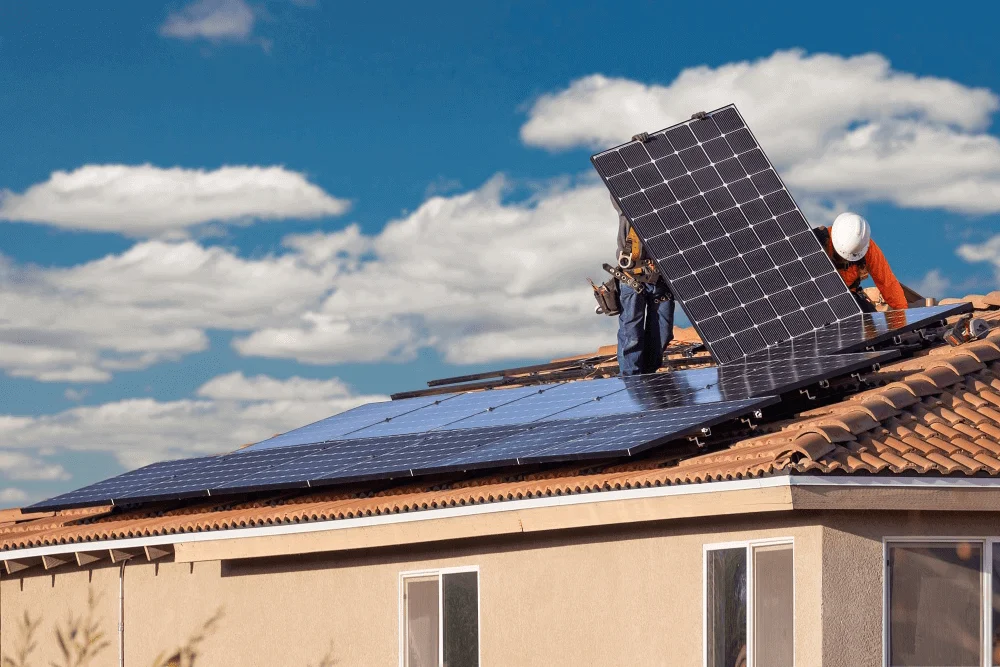
If you're considering installing solar panels on your home, it's important to be aware of the potential pitfalls that can lead to overpaying. Solar panels are a significant investment, and it's essential to get the best value for your money. In this blog, we'll explore some of the common ways that homeowners overpay for solar panel installations and how to avoid these mistakes.
-
Not shopping around for the best deal
One of the biggest mistakes that homeowners make when installing solar panels is not shopping around for the best deal. Just like with any other major purchase, it's essential to compare prices from several different solar panel installation companies to find the best value. Keep in mind that the cheapest quote isn't always the best option. Look for a company that offers high-quality equipment and a good warranty.
-
Not understanding the costs involved
Another common pitfall when installing solar panels is not understanding all of the costs involved. When getting a quote for a solar panel installation, make sure you understand all of the costs, including equipment, labour, and any additional expenses such as permits and inspections. It's also important to consider the cost of maintaining and repairing the solar panels in the future.
-
Choosing the wrong size system
Another way that homeowners often overpay for solar panel installations is by choosing the wrong size system. A system that is too large will be more expensive than necessary, while a system that is too small won't generate enough power to meet your needs. Make sure to work with a professional solar installer who can help you determine the right size solar panel system for your home based on your energy needs and the size of your roof. Going with a low-quality system
Finally, another way that homeowners overpay for solar panel installations is by choosing a low-quality system. While it may be tempting to go with the cheapest option, this can result in a lower-quality system that won't perform as well and may need to be replaced sooner. Investing in a high-quality solar panel system from a reputable manufacturer will ensure that you get the best return on your investment over time.
In conclusion, overpaying for a solar panel installation is a common mistake that can be easily avoided with a little research and due diligence. By shopping around for the best deal, understanding the costs involved, choosing the right size solar panel system, and investing in a high-quality system, you can ensure that you get the best value for your money when installing solar panels on your home.
Assembling a makeshift solar panel system.
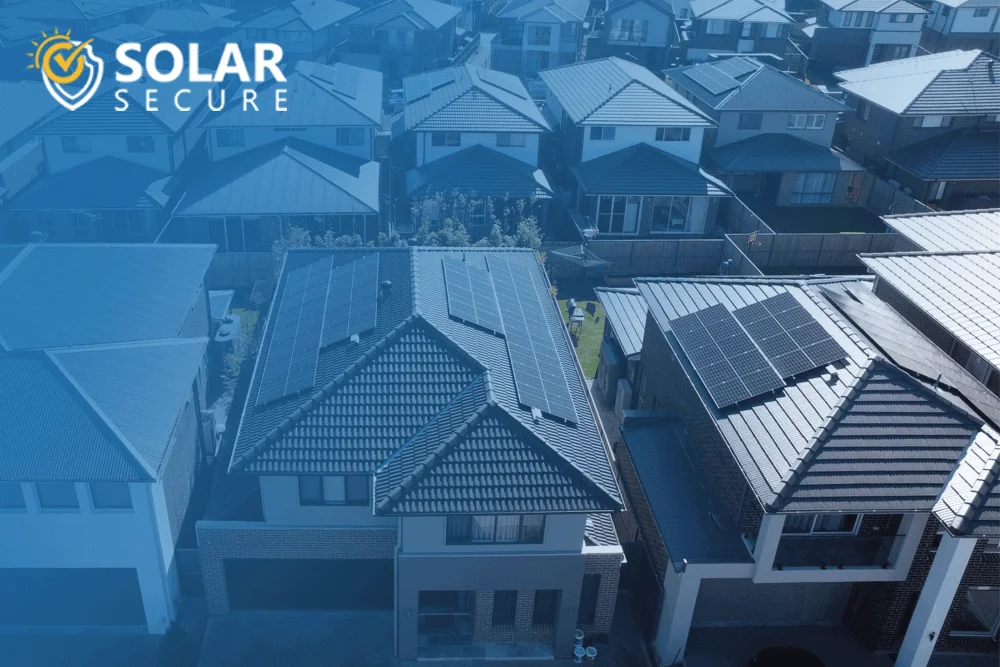
Assembling a solar panel system can be a challenge if you have acquired the parts over time, like an inverter from eBay and panels from a few years ago. While it may seem like you have all the pieces, compatibility is key when it comes to ensuring the system functions properly.
Unfortunately, having mismatched components can lead to a number of problems, such as an undersized inverter for the panel output, mismatched solar panel sizes that don't fit together on the mount, and components with incompatible connectors. Additionally, a power center might be missing crucial components like circuit breakers, remote control, or monitoring hardware.
When you piece together a system from various sources, you run the risk of ending up with a hodgepodge of components that may not be supported by anyone because they were purchased from all over the Internet. To avoid these headaches, it's important to start with a plan and stick to it, ensuring all components are compatible and will work together effectively.
At our company, we believe in avoiding costly mistakes when it comes to solar panel systems. That's why we don't offer a complete solar panel system for purchase directly from our website. Instead, we require customers to reach out for a design consultation before making any purchases.
This allows us to provide a customized solution that meets your specific needs and ensures that all components are compatible and will work together efficiently. By taking the time to plan and design your solar panel system, you can avoid the headache of mismatched components and ensure that your investment in solar energy pays off in the long run.





